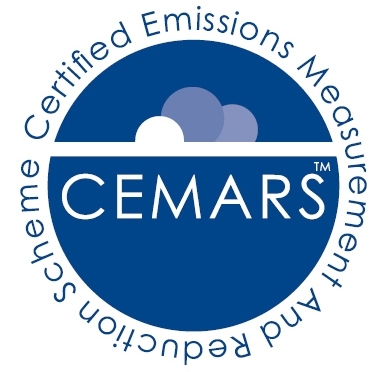Costain Receives Accreditation For Carbon Footprint

23 July 2012
Costain has received independent accreditation for reducing its carbon footprint following an external audit by Achilles to the Certified Emissions Measurement and Reduction Scheme (CEMARS).
Accreditation to CEMARS means Costain’s commitment over the last three years to accurately report and reduce its carbon emissions has been officially recognised. The CEMARS standard includes a yearly review to ensure the Company continues to meet its reduction goals, which are in line with the Company’s Corporate Responsibility (CR) initiative, Costain Cares.
Research published in 2011 by the business-led charity, Business in the Community (BITC), showed that companies with a greater CR standard, like Costain Cares, benefit in the long run from increased shareholder value and winning new business. Reducing the environmental impact of its business has been an important part of Costain’s CR strategy.
“We have made great strides over the last three years in significantly reducing our absolute emissions by 50% and our emissions intensity by 30%,” said Amy Shuffleton, Costain’s Group Environmental Manager.
Costain’s emissions come from bulk fuel use, electricity and gas usage, business mileage and also from indirect emissions such as rail and air travel, water usage and the disposal of waste at landfill. The newly accredited Footprint only includes the Company’s UK operations and emissions from sources within its direct operational control.
Joint Ventures, international operations and its acquisitions in 2011 are not currently included although it is hoped that its acquisitions will be included from 2012 onwards.
Costain’s method of reporting is in accordance with and certified against ISO 14064-1:2006 and is also in line with CRC Energy Efficiency Scheme’s reporting guidelines which enables the Company to achieve credit in the scheme’s Early Action Metric.
Amy said the reduction in carbon emissions is due to a number of strategies being implemented across the Group, such as changing the makeup of the fleet to include lower emission vehicles, the introduction of conference calls, greater employee energy awareness through training, waste reductions and working with its supply chain to ensure it uses low carbon equipment where possible.
However, Amy said more work needs to be done and that more challenging targets have been set.
Costain aims to see a 55% reduction in Emission Intensity by 2020 against a 2009 baseline by actively engaging with its employees, customers and supply chain. Costain is also working with its customers to provide them with low cost low carbon solutions to help reduce their carbon emissions.
“We all need to take responsibility for trying to reduce our carbon footprint. We hope to achieve our 2020 target by getting everyone in the Company involved by incentivising green initiatives like car sharing, by promoting alternative on-site energy sources or by simply getting connected to the grid a lot earlier instead of using bulk fuel generators which have a higher carbon emission impact,” said Amy.
Ends
